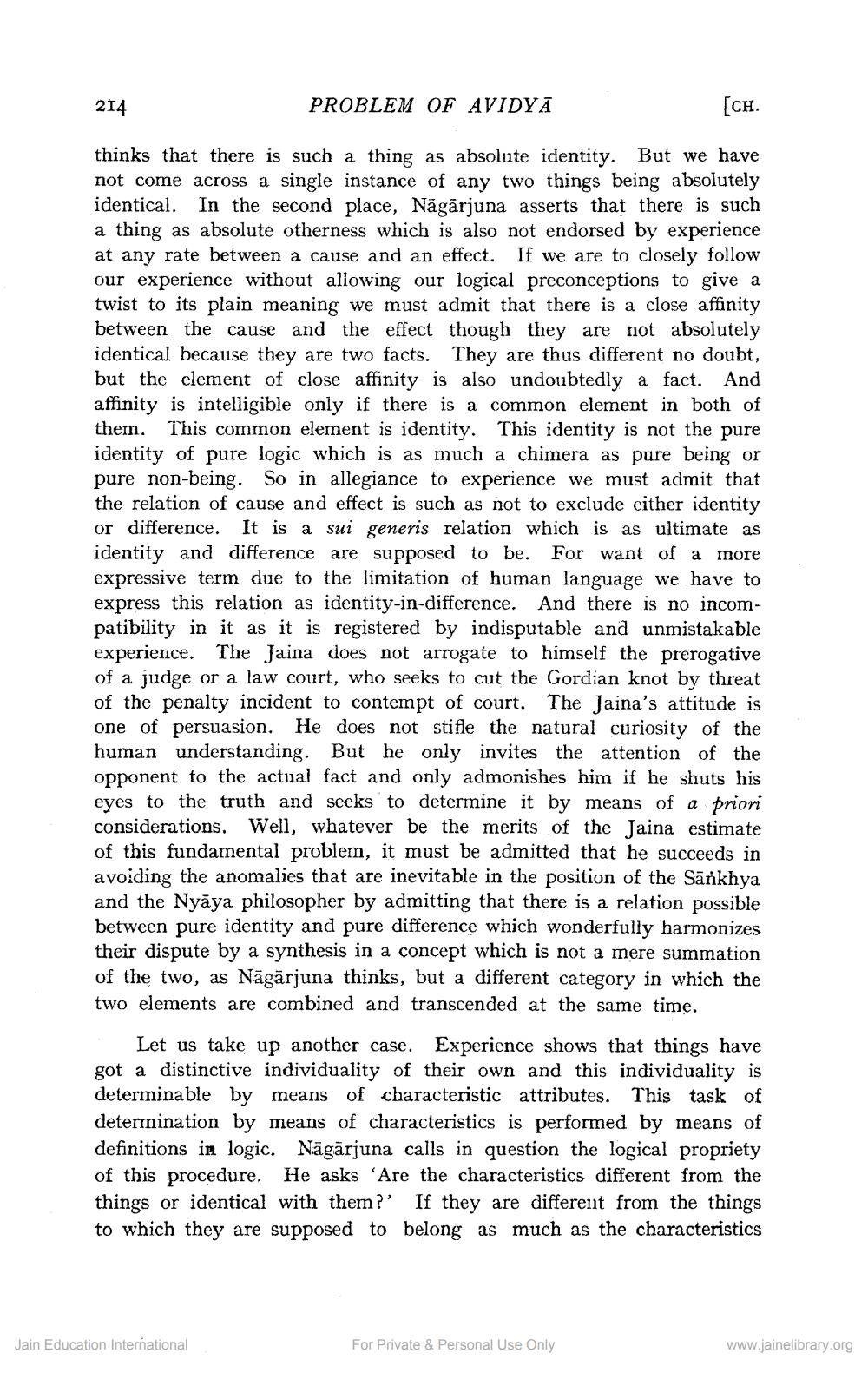________________
214
PROBLEM OF AVIDYA
[CH.
thinks that there is such a thing as absolute identity. But we have not come across a single instance of any two things being absolutely identical. In the second place, Nāgārjuna asserts that there is such a thing as absolute otherness which is also not endorsed by experience at any rate between a cause and an effect. If we are to closely follow our experience without allowing our logical preconceptions to give a twist to its plain meaning we must admit that there is a close affinity between the cause and the effect though they are not absolutely identical because they are two facts. They are thus different no doubt, but the element of close affinity is also undoubtedly a fact. And affinity is intelligible only if there is a common element in both of them. This common element is identity. This identity is not the pure identity of pure logic which is as much a chimera as pure being or pure non-being. So in allegiance to experience we must admit that the relation of cause and effect is such as not to exclude either identity or difference. It is a sui generis relation which is as ultimate as identity and difference are supposed to be. For want of a more expressive term due to the limitation of human language we have to express this relation as identity-in-difference. And there is no incompatibility in it as it is registered by indisputable and unmistakable experience. The Jaina does not arrogate to himself the prerogative of a judge or a law court, who seeks to cut the Gordian knot by threat of the penalty incident to contempt of court. The Jaina's attitude is one of persuasion. He does not stifle the natural curiosity of the human understanding. But he only invites the attention of the opponent to the actual fact and only admonishes him if he shuts his eyes to the truth and seeks to determine it by means of a priori considerations. Well, whatever be the merits of the Jaina estimate of this fundamental problem, it must be admitted that he succeeds in avoiding the anomalies that are inevitable in the position of the Sankhya and the Nyāya philosopher by admitting that there is a relation possible between pure identity and pure difference which wonderfully harmonizes their dispute by a synthesis in a concept which is not a mere summation of the two, as Nāgārjuna thinks, but a different category in which the two elements are combined and transcended at the same time.
Let us take up another case. Experience shows that things have got a distinctive individuality of their own and this individuality is determinable by means of characteristic attributes. This task of determination by means of characteristics is performed by means of definitions in logic. Nāgārjuna calls in question the logical propriety of this procedure. He asks 'Are the characteristics different from the things or identical with them?' If they are different from the things to which they are supposed to belong as much as the characteristics
Jain Education International
For Private & Personal Use Only
www.jainelibrary.org




